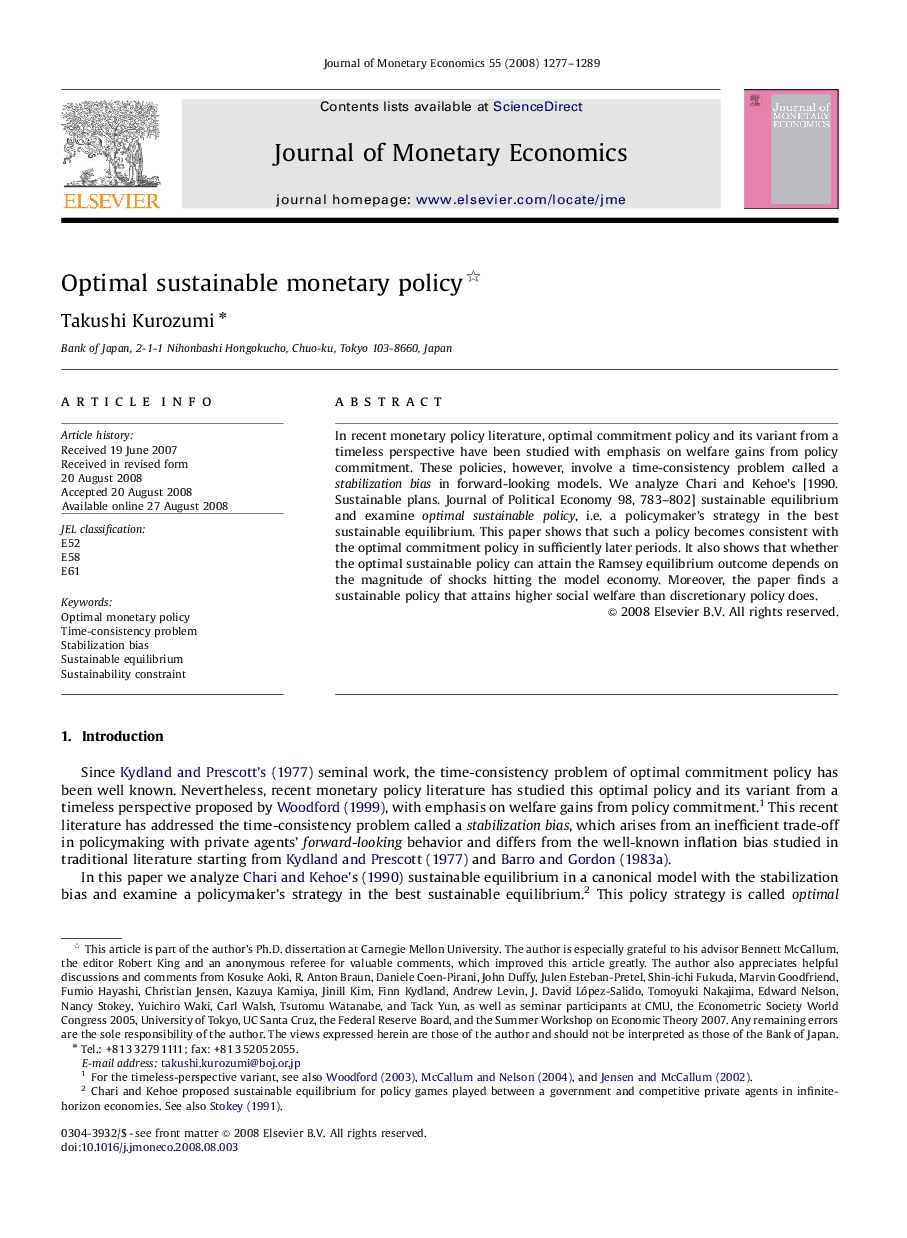| Article ID | Journal | Published Year | Pages | File Type |
|---|---|---|---|---|
| 966681 | Journal of Monetary Economics | 2008 | 13 Pages |
Abstract
In recent monetary policy literature, optimal commitment policy and its variant from a timeless perspective have been studied with emphasis on welfare gains from policy commitment. These policies, however, involve a time-consistency problem called a stabilization bias in forward-looking models. We analyze Chari and Kehoe's [1990. Sustainable plans. Journal of Political Economy 98, 783-802] sustainable equilibrium and examine optimal sustainable policy, i.e. a policymaker's strategy in the best sustainable equilibrium. This paper shows that such a policy becomes consistent with the optimal commitment policy in sufficiently later periods. It also shows that whether the optimal sustainable policy can attain the Ramsey equilibrium outcome depends on the magnitude of shocks hitting the model economy. Moreover, the paper finds a sustainable policy that attains higher social welfare than discretionary policy does.
Related Topics
Social Sciences and Humanities
Economics, Econometrics and Finance
Economics and Econometrics
Authors
Takushi Kurozumi,
